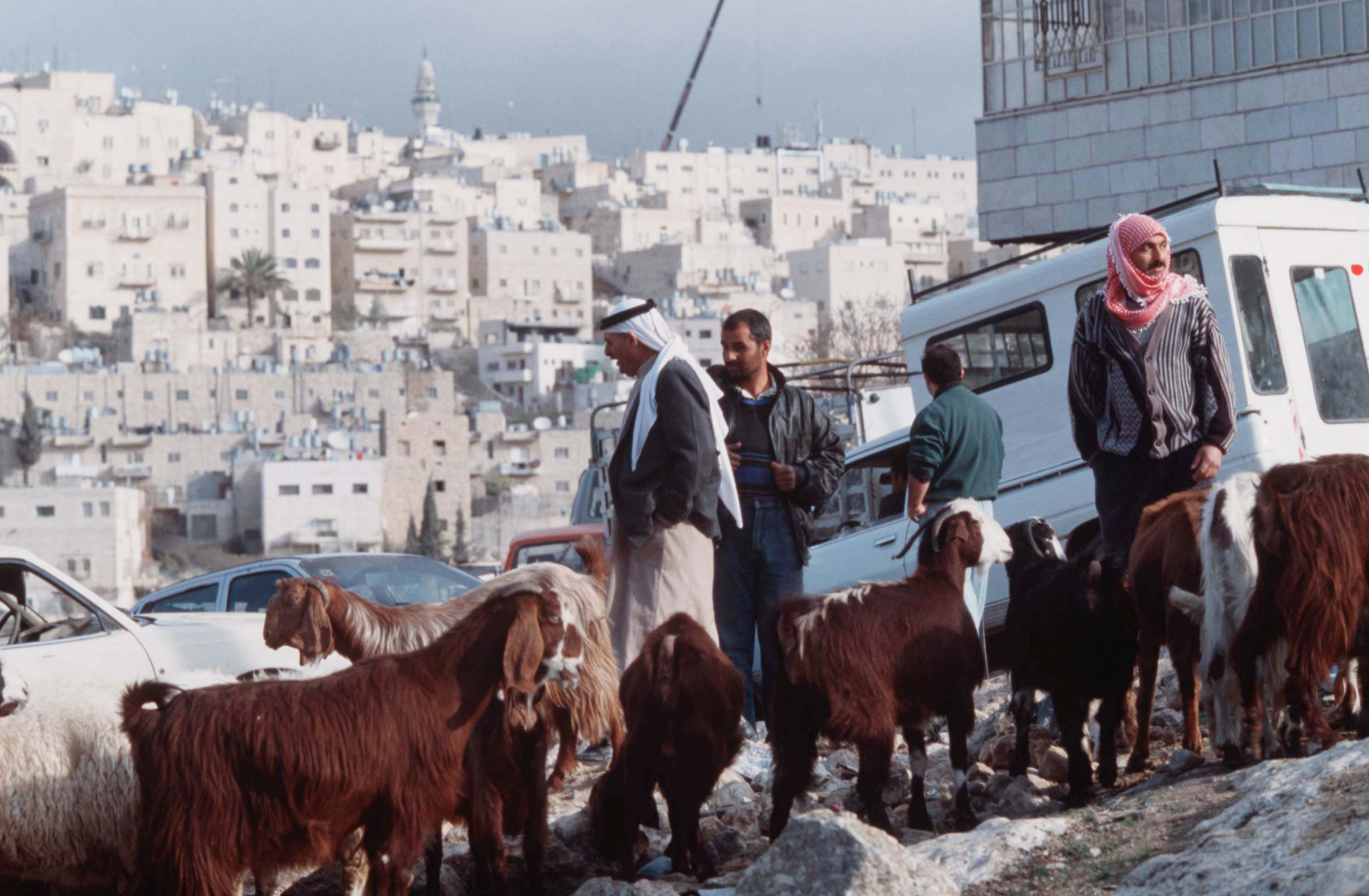
BETHLEHEM, Israel (BP)–Christmas 2000 was supposed to have been a landmark celebration in Bethlehem, the birthplace of Jesus, but because of ongoing violence, the holiday is all but cancelled this year in the town where it all began.
Locally, tens of thousands of Christians will celebrate the religious aspects of Christmas, but the holiday trimmings and pilgrims from abroad will be far fewer than in previous years.
“Generally speaking, religious ceremonies will take place as usual,” said Bajis Ismail, Director General of the Palestinian Authority Ministry of Tourism, located in Bethlehem. However, Ismail said that people are not in the mood to celebrate a normal holiday.
Christmas decorations left over from last year are the only visible signs of the season. It is questionable whether new lights will be put up and a tree erected. Shops are closed, tourists and pilgrims are nowhere to be found, and Manger Square and the Church of the Nativity, built over the traditional site of Jesus’ birthplace, are virtually empty.
Jumana Abbas is the Public Relations and Media Officer for the Bethlehem 2000 project, which was set up to renovate the city’s infrastructure in preparation for the Millennium celebrations in the city. Those activities kicked off with Christmas 1999, included a visit by Pope John Paul II and are set to continue through Easter 2001.
Christmas 2000 was to have topped off a boom tourist year but nightly gun battles nearby have turned it into a bust. Bethlehem borders Beit Jala, where Palestinian gunmen have hijacked the homes of Christians to fire on the Jewish Jerusalem neighborhood of Gilo across the valley drawing heavy retaliatory shooting from the Israeli army.
According to Ismail, there were some 765,000 visitors to Bethlehem during the first nine months of the year — an average of 85,000 a month. But in October only 27,000 tourists visited and last month only 3,200 came to the city.
Abbas said that hotels alone, which had been fully booked, are now completely empty. They lost a projected income of some $20 million for the last quarter of this year, she said.
The decision to cancel activities, such as the Christmas festival, Abbas said, did not come from the authorities but rather from the local population.
“We are mourning. We are not in a festive mood,” said Abbas, referring to the more than 300 dead and thousands wounded from 10 weeks of violence.
“We cannot promise that Bethlehem is safe,” said Abbas, who is herself a Muslim living in Ramallah. But some pilgrims are insisting on coming anyway, she added.
Abuna Yacoub [Father Jacob] is the 71-year-old priest that heads the Syrian Orthodox church in Bethlehem. One of the oldest churches in the Holy Land, the community speaks and reads the ancient Aramaic, which was the spoken language in Jesus’ time.
The Syrian Orthodox church building Abuna Yacoub proudly said was built on the site where the inn stood, which had no room for Mary, the mother of Jesus, and her husband Joseph, when the arrived in Bethlehem. Tourists frequently visited there but during the last few months they have all stopped coming.
Born in Nineveh, Iraq, Abuna Yacoub has been in Bethlehem 42 years. He said he is “very nervous” about the situation and what will happen in the future. It’s a “hard situation,” he said. The church is doing its best to help the people, he added, especially the poor.
Yousef Shaheen is a member Abuna Yacoub’s church and a leader of the Syrian Orthodox community’s scout group.
“The Christians will just pray,” Shaheen said. The scouts, who normally lead the Christian religious processions into the city on Christmas, will not be in the streets this year, he added.
There are about 5,000 Syrian Christians in Bethlehem, many of whom are very poor. They are feeling the pinch of more than two months of unemployment, due to Israeli closures on the PA territories, which prevent Palestinians from working in Israel, and the virtual collapse of the tourist industry.
“The children are not feeling Christmas,” said Shaheen, who is a worker in olive wood ornaments. “Parents are not even talking about Christmas much with their children, because so many have lost their jobs, there is no money for gifts and the new clothes that usually accompany the holiday.”
“We don’t feel the atmosphere of Christmas at all,” said Faten Nastas, a 25-year-old artist, who works for the Lutheran sponsored International Center of Bethlehem, just up the road from the Syrian Orthodox church.
“You don’t feel it in market. [People] don’t even talk about it,” she said. According to Nastas, the main question on people’s minds is how long the situation will last.
Rev. Dr. Mitri Raheb, General Director of The International Center of Bethlehem, was involved in organizing a candle light procession through Bethlehem, earlier in the week.
As many as 2,000 Christians and Muslims took part in the peaceful parade, which Raheb said was orchestrated to help the people make a political and religious statement and conquer their fears.
“I think [the] Palestinian Christian community is interested in taking a pro-active role in what is going on today,” Raheb said, in reference to the fact that many living in Bethlehem want to add their support to the Palestinian uprising without throwing stones.
“The Palestinian Christian community is interested at this time of advent [in giving] the message of hope and peace,” Raheb said. At the same time, he added, the community wanted to declare that Bethlehem is not just an ancient town in Christmas carols, but that there are people living there who are suffering.
–30–
(BP) photo posted in the BP Photo Library at www.bpnews.net. Photo title: CHRISTMAS IN BETHLEHEM.















